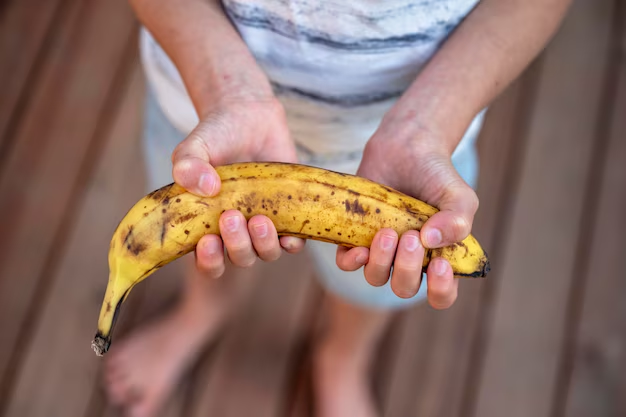Your Guide to Are Bananas Bad For Diabetics
What You Get:
Free Guide
Free, helpful information about Diabetes FAQ and related Are Bananas Bad For Diabetics topics.
Helpful Information
Get clear and easy-to-understand details about Are Bananas Bad For Diabetics topics and resources.
Personalized Offers
Answer a few optional questions to receive offers or information related to Diabetes FAQ. The survey is optional and not required to access your free guide.
Can Diabetics Enjoy Bananas Without Guilt?
For many people managing diabetes, the question of what fruits can be safely consumed is a common concern. Bananas, with their natural sweetness and convenient packaging, often find themselves the subject of scrutiny. So, are bananas bad for diabetics? The answer is more nuanced than a simple yes or no.
Understanding Bananas and Blood Sugar
Bananas are rich in vitamins, minerals, and fibers, making them a nutritious choice. However, they also contain carbohydrates, which can influence blood sugar levels. For diabetics, monitoring carb intake is crucial because carbohydrates are broken down into glucose, directly affecting blood sugar.
Glycemic Index (GI) is an important concept here. It measures how quickly foods raise blood sugar levels. Bananas have a moderate GI score, typically around 51. This means they have a moderate impact on blood sugar, less than high-GI foods like white bread but more than low-GI foods like whole grains and most vegetables.
Tips for Eating Bananas With Diabetes
Moderation is Key: Enjoy bananas in moderation. A small banana contains approximately 23 grams of carbohydrates, comparable to an apple or orange. Smaller portions can help manage blood sugar spikes.
Pair With Protein or Fats: Combining bananas with protein or healthy fats can slow down digestion and lessen the immediate impact on blood sugar. Think of topping bananas with peanut butter or adding slices to a bowl of yogurt.
Consider Ripeness: The ripeness of a banana can impact its sugar content. Ripe bananas have higher sugar levels, while greener bananas contain more resistant starch, which is beneficial for blood sugar management.
The Bigger Picture: Overall Diet and Lifestyle
Focusing on bananas alone is not the ultimate solution for managing diabetes. It's crucial to look at your overall diet and lifestyle. Incorporating a balanced diet rich in vegetables, lean proteins, and whole grains is essential. Regular physical activity and routine monitoring of your blood sugar levels also play a critical role in effective diabetes management.
Financial Health and Diabetes Management
Beyond dietary considerations, managing diabetes can be a financial burden. Fortunately, several programs could ease this load, helping you keep health concerns and money worries at bay.
Government Aid Programs: Look into Medicare or Medicaid for healthcare coverage that may include diabetes management supplies and medication.
Financial Assistance for Medication: Many pharmaceutical companies offer assistance programs to help cover the cost of diabetes medications for those who qualify.
Educational Grants for Health: If you're looking to expand your knowledge about diabetes management, consider available scholarships and grants that can fund further education on diabetes care and nutrition.
Taking steps toward better financial health can make managing diabetes more feasible. Here’s a list of resources that might be beneficial:
💊 Prescription Assistance Programs: Programs like RxAssist help find ways to reduce the cost of diabetes medication.
💼 Medicare & Medicaid Services: Provides options for coverage that can include diabetic supplies and testing strips.
🎓 Educational Grants and Scholarships: Look for programs that offer funding for courses in nutrition and diabetes management.
While bananas are not inherently bad for diabetics, understanding how they fit into a balanced diet is important for effective diabetes management. Equally essential is being aware of financial and educational resources that can support a healthier lifestyle.
What You Get:
Free Diabetes FAQ Guide
Free, helpful information about Are Bananas Bad For Diabetics and related resources.

Helpful Information
Get clear, easy-to-understand details about Are Bananas Bad For Diabetics topics.

Optional Personalized Offers
Answer a few optional questions to see offers or information related to Diabetes FAQ. Participation is not required to get your free guide.


